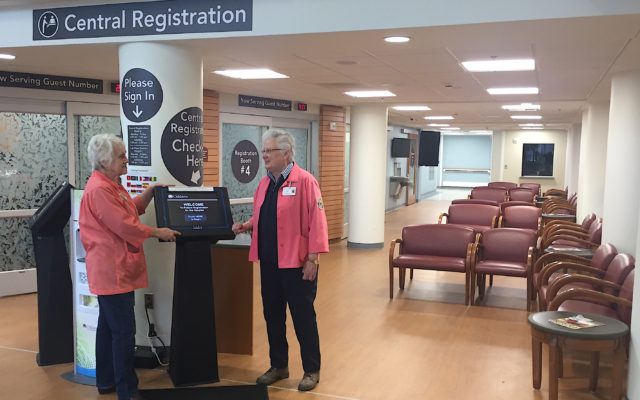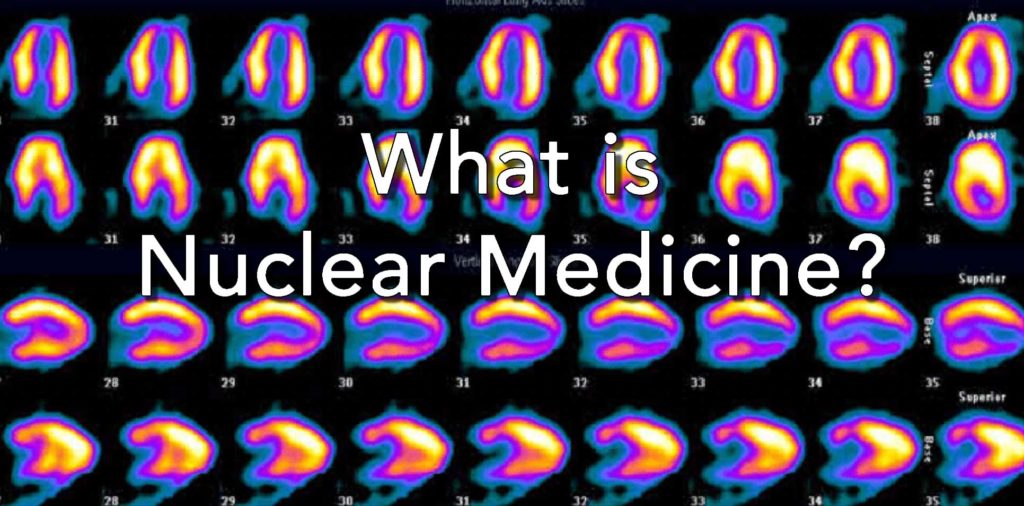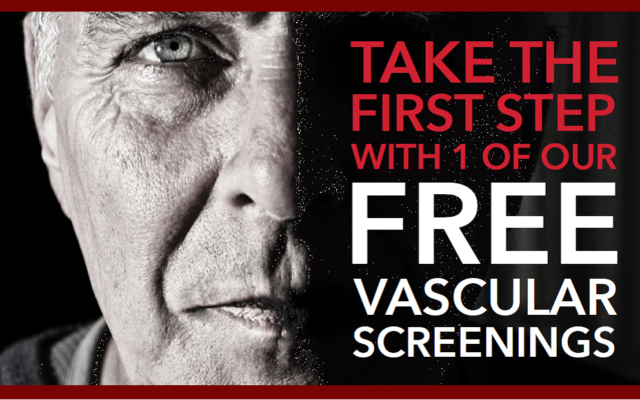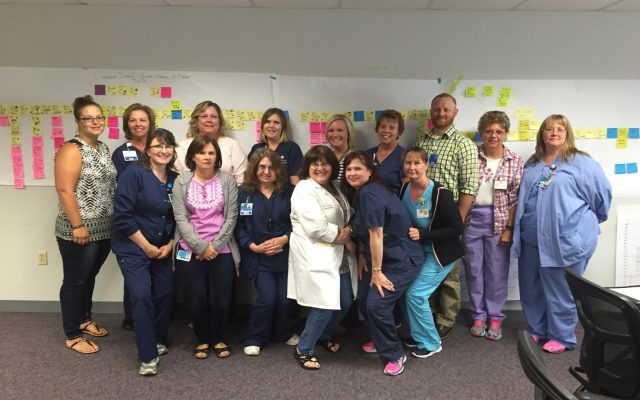
Now Scheduling Primary Care Appointments Online. Book Now.
Radiology

Nuclear medicine is a diagnostic exam that provides information about organ function. Nuclear medicine scans determine the presence of disease based on biological and anatomical changes such as what an organ looks like and how it functions. This allows evaluation of the function of numerous organs, such as the thyroid gland, lungs, heart, stomach, kidneys, parathyroid, liver, gallbladder and more.
Nuclear medicine scans allow detection and the ability to monitor certain types of cancer, detect bone and joint abnormalities such as fractures, arthritis, or tumors, and evaluate certain neurological diseases, infection and more.
Types of Nuclear Medicine Scans
Cardiac Stress Tests
- Detection and evaluation of coronary artery disease.
- Evaluation of suspected or known coronary artery stenosis
- Evaluation of possible candidates for coronary bypass surgery or angioplasty.
- Evaluation of physical indicators: acute myocardial infarction, chest pain, shortness of breath, history or family history of heart disease.
- Determine or prognosis after a myocardial infarction
- Evaluation of the viability of dysfunctional myocardium.
- Assessment of risk or myocardial events.
- Evaluation of ventricular function.
- Evaluation of laboratory indications.
- Evaluation of the heart due to abnormal results on related studies.
Exam Time: 3 – 3 1/2 hours
Patient Preparation
- No caffeine products for 12 hours prior to test (coffee, decaf coffee, chocolate, Excedrin migraine medicine)
- No nicotine products 2 hours prior to testing (cigarettes, nicotine patches & gum, chewing tobacco, vapes)
- No nitro 2 hours prior to testing (nitro patches, oral medicine, drips)
- If walking on the treadmill, no beta blockers 24 hours prior to testing
Cardiac MUGA
- Evaluation of left and sometimes right wall motion
- Calculation or ejection fraction, ventricular volume, cardiac output, and systolic and diastolic function.
- Evaluation of patients heart condition before and/or after surgery, chemotherapy or radiation therapy.
- Assessment of CHF as to ischemic ornonischemic causes.
- Detection and evaluation of presence, location, and extent of coronary artery disease.
- Evaluation of cause of dyspnea: cardiac or pulmonary.
- Evaluation of physical indicators: myocardial infarction, chest
- pain. Shortness of breath, or history of heart disease.
- Evaluation of laboratory indicators.
- Evaluation of the effects of valvular abnormalities.
- Evaluation of heart because of abnormal results on related studies.
Exam Time: 45 min (no patient preparation required)
Gastric Emptying Study
- Determination of delayed gastric emptying (gastroparesis) with quantitation of gastric emptying rate
- Evaluation of mechanical obstruction.
- Evaluation of anatomic obstruction (pyloric, postsurgical, postradiotherapy).
- Evaluation for altered function.
- Evaluation of viral infection, e.g., gastroenteritis, hyperalimentation, gastric distention, physical and/or mental stress-related abdominal pain.
- Evaluation of suspected tumors or surgery.
- Evaluation of nausea, vomiting, early satiety, upper abdominal discomfort, bloating, dyspepsia, gastroesophageal reflux, and/or chronic aspiration.
- Evaluation of weight loss.
- Evaluation of results from other modalities.
Exam Time: 2 – 4 hours
Patient Preparation
- Nothing by mouth for 8 hours prior to exam (a sip of water with morning medication is ok)
- No Reglan for 3 days prior to testing
- No Domperidone (Motillium) for 5 days prior to testing
Gastrointestinal Bleeding (GI Bleed)
- Detection and localization of bleeding sites in patients with active or intermittent gastrointestinal (GI) bleeding. Usually presents as low red blood cell counts in lab tests and/or blood in stool or melena (dark stool). Dark red blood may be small bowel or old bleed, bright red blood may be large bowel or anal. Could be caused by aspirin, ulcers, perforation, cancers, inflammation, diverticula, hemorrhoids, or angiodysplasia.
- Detection and localization of secondary blood loss as in blood pooling in peritoneal cavity or ruptured arterial or venous supplies.
- Detection and localization of actively bleeding sites, for patients with portal hypertension, and hypertension to abdominal collateral vessels.
Exam Time: 1 – 2 hours (no patient preparation required)
HIDA Scan
- Evaluation of abdominal pain (especially right upper quadrant pain).
- Evaluation of cholecystitis: acute inflammation of gallbladder, cystic, or common bile ducts.
- Evaluation of cholelithiasis: obstruction. Acute vs chronic.
- Evaluation of biliary colic.
- Evaluation of biliary dyskinesia.
- Evaluation of EF and/or gallbladder function.
- Evaluation of post-gallbladder surgery for suspected leakage.
- Evaluation of hepatobiliary function due to abnormal results on related studies.
Exam Time: ~ 2 hours
Patient Preparation
- Nothing by mouth for 8 hours prior to exam
- No narcotic medication 8 hours prior to exam
- Consume a fatty meal within 12 hours prior to testing
Liver/Spleen Scan
- Assessment of anatomy, size and relative position of liver and spleen.
- Assessment of hepatomegaly, splenomegaly, splenic infarcts, accessory spleen or splenosis or situs inversus.
- Assessment of chronic liver or spleen disease, including primary liver tumors and metastasis, jaundice, cirrhosis, hepatocellular disease, hepatitis, hepatic abscess, RES function or elevated blood work.
- Detection and assessment of hepatic or splenic trauma.
- Evaluation for liver disease, chronic anemia, leukemia or other blood disorders.
- Evaluation of hepatic infections
- Evaluation of relative splenic function by liver: spleen ratio.
- Evaluation for liver biopsy.
- Assessment of previous splenectomy.
- Detection and evaluation of splenic mass.
Exam Time: 15 – 30 min (no patient preparation required)
Lung Perfusion
- Evaluation for pulmonary embolism (PE).
- Evaluation of pulmonary perfusion and/or perfusion affected by pulmonary disorders.
- Evaluation of chest pain.
- Evaluation of shortness of breath.
- Evaluation of low blood oxygen saturation.
- Evaluation of lung transplantation.
- Evaluation of lung for surgery and/or pre and post lung surgery.
Exam Time: 30 – 45 min (no patient preparation required)
Lymphoscintigraphy
- Detection of metastatic invasion of the sentinel lymph nodes.
- Evaluation of staging (spread) of cancers (breast, lymphatic, melanomas, etc..) into the lymph system.
No patient preparation required
Parathyroid Scan
- Detection and localization of primary and secondary parathyroid cancer.
- Identification of single adenomas, multiple adenomas or glandular hyperplasia in patients with hypercalcemia and elevated parathyroid hormone levels.
- Localization of cancer for surgery candidates.
- Localization of parathyroid tissue after surgery for persistent or recurrent hyperparathyroidism.
No patient preparation required
Renograms
- Evaluation for renal artery stenosis, obstruction and/or trauma.
- Evaluation of renal tubular function and perfusion for blood flow, parenchyma and excretion.
- Evaluation of renal vascular flow
- Evaluation of renal obstructive nephropathy and/or hydronephrosis.
- Differentiation between obstructive hydronephrosis and nonobstructive dilation of collecting system.
- Detection of acute tubular necrosis.
- Evaluation of a kidney transplant to include acute tubular necrosis, acute and chronic rejection, hematomas, etc.
Exam Time: 45 min – 1 hour
Patient Preparation
- Well hydrated x 24 hours prior to testing
- No Lasix medication x 48 hours prior to testing
- No ACE inhibitors 3 hours prior to testing.
Thyroid Uptake/Scan
- Evaluation of thyroid function and anatomy.
- Detection and evaluation of hyperthyroidism and hypothyroidism.
- Evaluation of abnormal thyroid serum laboratory results.
- Evaluation of thyroid because of palpation and/or abnormal findings on previous examination.
- Evaluation or subclinical disease processes.
- Evaluation and assessment of thyroid function for I-131 radiotherapy.
- Evaluation of independently functioning nodules.
Exam Time: Day 1 (30 min), Day 2 (30 min)
Patient Preparation
- No CT contrast 6 weeks prior to exam
- No thyroid medication 6 weeks prior to exam
- No cough medicine 2 weeks prior to exam
- No multivitamins 2 weeks prior to exam
- No seafood 1 week prior to exam
White Blood Cell Scan
- Detection and localization of acute and chronic osteomyelitis (especially acute) and other musculoskeletal infections.
- Detection and localization of acute abscesses or unknown sources of sepsis.
- Localization of site(s) of infection in patients with granulocytosis or positive blood cultures.
- Detection and localization of infection with or without accompanying fever but especially in cases of fever of unknown origin.
- Evaluation for prosthesis rejection or other postoperative infections, inflammations, and/or abscesses.
Exam Time: 45 min (no patient preparation required)
Bone Scans
A bone scan might help determine the cause of unexplained bone pain. The test is sensitive to differences in bone metabolism, which are highlighted in the body by the radioactive tracer. Scanning the whole skeleton helps in diagnosing a wide range of bone disorders, including:
- Fractures
- Arthritis
- Paget’s disease of bone
- Cancer originating in bone
- Cancer that has metastasized to bone from a different site
- Infection of the joints, joint replacements or bones

